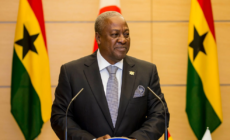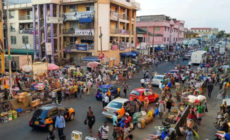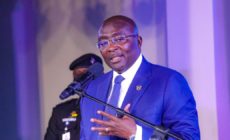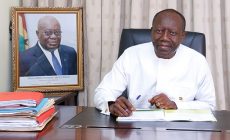Economy to hit 6.0% in 2017
- Posted on
- Comment
 Investment firm, InvestCorp says the Ghanaian economy will grow at about 6.0 percent in 2017 underpinned by a stronger recovery in private sector output and investment.
Investment firm, InvestCorp says the Ghanaian economy will grow at about 6.0 percent in 2017 underpinned by a stronger recovery in private sector output and investment.
The projection is however lower than government’s own projection of 7.2 per cent.
In its latest Ghana Economy Report, it said “We believe the gains in 2016 should enable higher GDP growth in 2017 underpinned by a stronger recovery in private sector output and investment. It is also likely that inflation, interest and exchange rates will be better contained in 2017 than in 2016; but a lot of this positive outlook will be contingent upon a deeper foreign exchange market and avoidance of costly policy mistakes that will reignite market uncertainty.”
InvestCorp projected a GDP growth of 4.50 percent for 2016 as against government target of 4.10 per cent.
It is important to recall that the IMF projected an end year growth of 3.3 per cent, the lowest in two decades.
The report noted that the Ghanaian economy was closing 2016 with improved economic statistics compared to 2015, adding “Our expectations for the end of the year include: real GDP growth of 4-4.5 percent (2015: 3.9 percent), inflation rate of 15.5-16.5 percent (2015: 17.7 percent), USD/GHS Year to Date depreciation of 5-5.2 percent (2015: 15.7 percent), benchmark 91-day Treasury bill yield of 16.5-17 percent (2015: 22.9 percent) and total public debt to GDP ratio of 67 per cent(2015: 70.8 per cent).
In practice, it said “we have also seen businesses and households slowly adjusting their expectations to improved macro stability and demand in 2017. Our view is that although Ghana’s real GDP growth has been interrupted by the energy crisis, currency depreciation and public debt in recent years, the future for real growth remains upbeat if Ghana can tame currency instability over the medium term and implement reforms that will lead to a strong recovery in private sector consumption.”
The investment firm expressed concern about currency instability which it said could distort capital budgeting, escalate fears about public debt and erode savings.
It therefore believed that with 58 percent of total public debt being external, the authorities must be mindful of the effects of currency depreciation on investor expectations, as the argument for currency depreciation supporting export competitiveness has become fairly muted.
Ghana’s economic growth slowed to 2.5 percent in the second quarter compared with a year earlier, provisional official data showed on Wednesday, due mainly to a temporary halt in oil production.
Ghana saw sustained GDP growth of above 8 percent until 2013, helped by exports of gold, cocoa and oil, but then slumped because of lower global commodity prices and a fiscal crisis.
By Augustine Amoah










 (Selorm) |
(Selorm) |  (Nana Kwesi)
(Nana Kwesi)